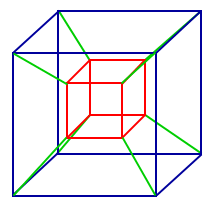In poker, there is a hierarchy of desirable hands which relate to how unlikely the hand is. For instance, a royal flush is deemed most desirable because it is least likely to arise in play.
But what if you allow wild cards?
Clearly this creates some new hands (like 5-of-a-kind). Allowing wild cards can also alter the hierarchy, since some hands are now more likely than they were before.
But a real surprise (and recent discovery) is that the following thing can occur: no matter what hierarchy is established, the resulting probabilities are incompatible! In other words, with wild cards, there are some hands that can be declared either of two types (such as two-pair or three-of-a-kind). But if you rank one type as more desirable than another, that type will more commonly arise in play, but this means it should have been less desirable!
The Math Behind the Fact:
See the references for more on this paradox. To learn more about the probabilities in poker, take your local probability class!
How to Cite this Page:
Su, Francis E., et al. “Poker Probability Paradox.” Math Fun Facts. <http://www.math.hmc.edu/funfacts>.
References:
S. Gadbois, “Poker with wild cards— a paradox?”, Math. Mag. 69(1996), pp. 283-285.
J. Emert, D. Umbach, “Inconsistencies of ‘Wild Card’ Poker”, Chance Magazine, 9(1996), 17-22.
Fun Fact suggested by:
Arthur Benjamin

